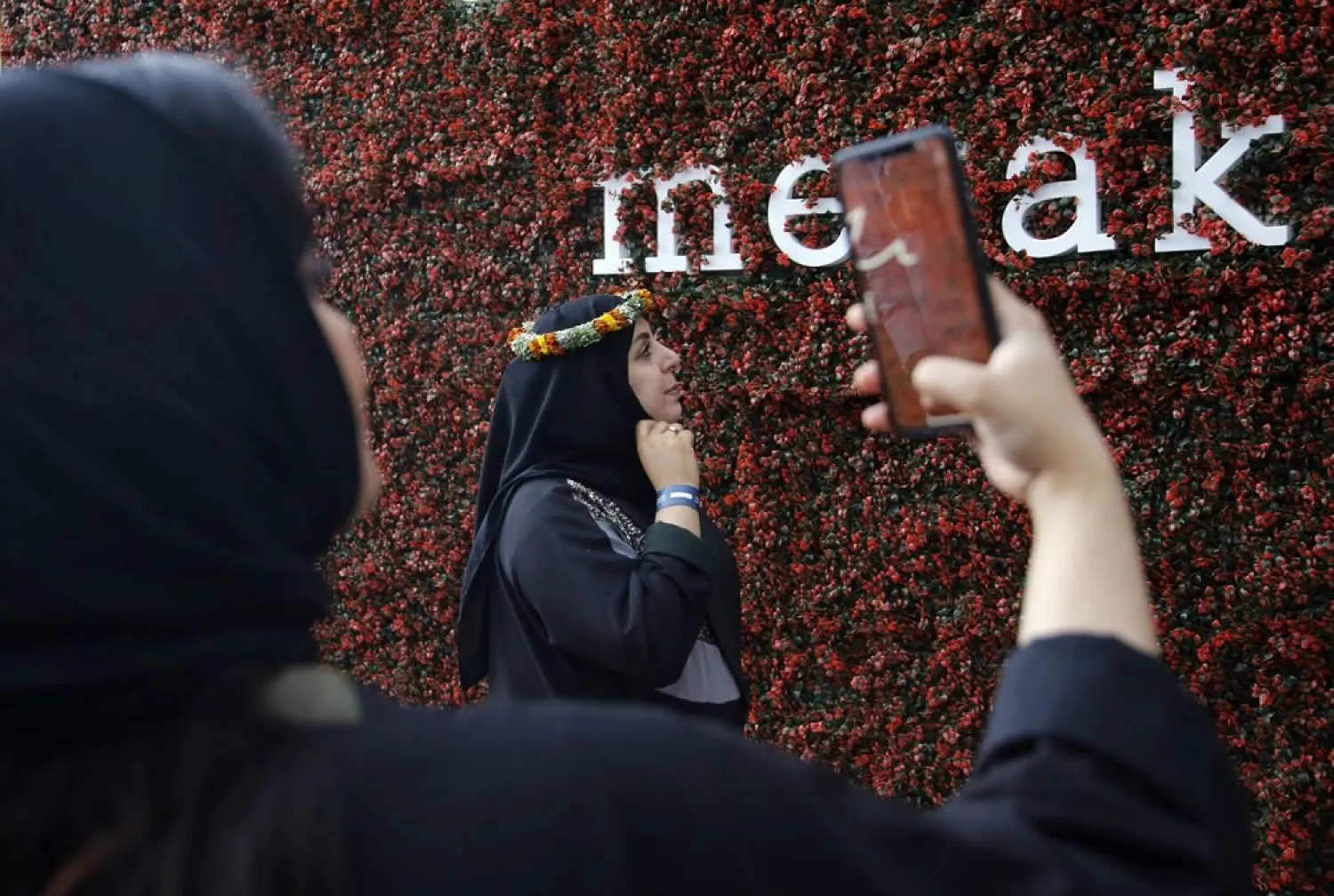Atop a string of green mountains in Saudi Arabia, the monthlong al-Soudah festival drew a medley of yoga enthusiasts, extreme adventure seekers, tourists and traditional Saudi families — many wearing colorful flower crowns native to the region.
The festival, which ran throughout the month of August, gave visitors a chance to experience a unique region in Saudi Arabia and take part in outdoor sports like hiking, mountain biking, paragliding, horseback riding, zip lining and bungee jumping. Thousands also attended concerts by Middle Eastern superstars.
The festival attracted between 12,000 and 15,000 visitors per day, said Husameddin al-Madani, who oversaw the event. Most visitors to the festival were Saudi citizens, but it also drew foreign tourists.
The weather in August in the village of al-Soudah, located in the southwest Asir province, is a comfortable 22 degrees Celsius in August, unlike the capital, Riyadh, or the coastal city of Jeddah, where temperatures exceed 43 degrees Celsius throughout the summer. In the winter, parts of the mountain range see snow.
Al-Soudah sits on part of the Sarawat Mountain range in the southwest of the Arabian Peninsula, some 3,000 meters above sea level. Its highlands are covered in the green of juniper trees. The area is also home to baboons, who were kept away from the festival with help from Human Wildlife Solutions based in Cape Town, South Africa.
Jeddah city resident Noura al-Moammar said she was surprised by the region's climate.
"I never thought, honestly, that my country is that rich with nature," she said, according to The Associated Press. "It's amazing for us to discover and see the different cultures and landscapes and weather in our beautiful Saudi."
In the nearby village of Rijal Almaa, the men wore flower crowns, or garlands, made from local flowers and herbs. Visitors here were treated to garlands of their own, local tribal dances, coffee, tea and evening lightshows displayed on the village's 500-year-old distinct natural clay, stone and wood structures.
The festival also drew extreme sports enthusiasts, including wingsuit base jumpers. Saudi media reported that British adventurer and astronautical engineer Angelo Grubisic died during a jump off the side of a cliff at the festival when he experienced difficulties reaching the landing site at speeds of around 160 kilometers (100 miles) per hour.
"Coming from America, there's obviously a lot of misconceptions ... but I'm here to show and prove it's nothing but incredible ... I hope everybody gets a chance to visit this place one day," said Paris Verra, a 24-year-old American visitor.
So serene was the vibe at the festival that Alwaleed al-Keaid, who runs a Saudi hiking company, led morning mediations atop the mountain.
"We start our mornings with a mediation session in this gorgeous environment where we thank God for this blessing and meditate," he said. "When we're done, we try the local bread with honey... and help people enjoy nature, forget about the rest of the world and live in the moment."
The festival also had its share of glitz and glamour with concerts by Middle Eastern mega stars, including Emirati singer Ahlam and Iraqi singer Kazem al-Saher. Their performances drew thousands of fans and al-Saher's concert alone generated 1.5 million Saudi riyals ($400,000) in ticket sales, festival organizers said.
The al-Soudah festival is one of 11 taking place in different parts of the country this year. The initiative, dubbed Saudi Seasons, is aimed at developing tourism and providing Saudis with temporary and permanent jobs.
Al-Madani, the CEO of the al-Soudah festival, said at least 515 young men and women were hired from the local community to assist in the monthlong event. Local businesses also got a boost by contributing to food trucks and other services.









